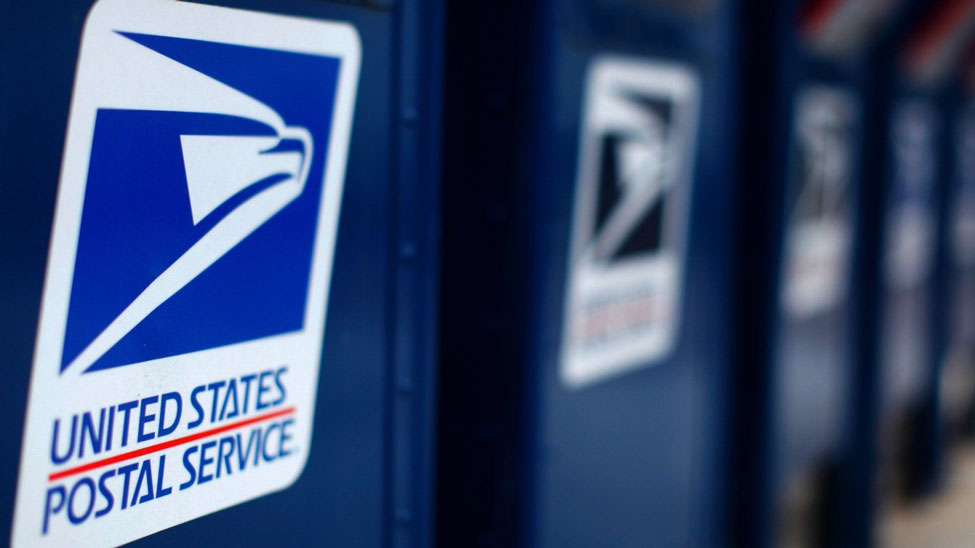
U.S. Postal Service sees improved financial results

The U.S. Postal Service has announced its financial results for the 2021 second quarter ended March 31, reporting a net loss of $82 million, compared to a net loss of approximately $4.5 billion for the same quarter last year, as a pandemic surge in demand for package deliveries was not enough to offset increased operating costs and a decline in revenue from mail services.
Excluding non-cash workers’ compensation adjustments for each period, the loss for the 2021 second quarter would have been approximately $1.7 billion, compared to a loss of approximately $1.9 billion for the same quarter last year.
The quarter included the March 23 release of the Postal Service’s 10-year plan, Delivering for America, which aims to deliver service excellence and a return to financial sustainability while maintaining universal six-day mail delivery and expanding seven-day package delivery. The plan also calls for investments in technology, training, Post Offices and a new vehicle fleet; modernizing our processing network; adopting best-in-class logistics practices across delivery and transportation operations; creating new revenue-generating offerings in the rapidly expanding e-commerce marketplace; pricing changes as authorized by the Postal Regulatory Commission; and legislative action, including Medicare integration. The entire plan can be found at: https://about.usps.com/what/strategic-plans/delivering-for-america/assets/USPS_Delivering-For-America.pdf.
“With our Delivering for America plan, the Postal Service will become a growth-oriented, high-performance organization that operates with greater precision, achieves 95 percent on-time delivery, and does so at a lower cost to serve,” said Postmaster General and Chief Executive Officer Louis DeJoy. “As we undertake this transformation – for the benefit of our customers, employees and the American public – we will operate and invest as a going concern with service excellence, a bright future of growth and financial sustainability.”
The Postal Service reported total revenue of approximately $18.9 billion for the second quarter of fiscal 2021, an increase of approximately $1.1 billion, or 6.0 percent, compared to the same quarter last year.
As a result of the pandemic, and to a lesser extent, secular mail declines, the Postal Service’s sales from mail services, its largest sales category, continued to decline during the second quarter. Compared to the same quarter last year, Marketing Mail revenue declined by $511 million, or 13.7 percent, on a volume decline of approximately 2.3 billion pieces, or 13.5 percent. First-Class Mail revenue decreased by $390 million, or 6.1 percent, on a volume decline of approximately 1.1 billion pieces, or 7.9 percent, compared to the same quarter last year.
Meanwhile, the Postal Service’s sales from Shipping and Packages increased by approximately $2.0 billion, or 33.6 percent, on a volume increase of 376 million pieces, or 25.3 percent, compared to the same quarter last year, as a result of the surge in e-commerce associated with the COVID-19 pandemic. However, Shipping and Packages produces a lower contribution margin per revenue dollar due to higher associated labor and transportation expenses. While the Postal Service believes that consumer behavior has evolved during the pandemic as the nation has increasingly relied on the safety and convenience of e-commerce, the Postal Service still expects this surge to partially abate as the economy continues to open.
Also, service performance improved in the quarter, with improvements continuing. USPS also anticipates ongoing network infrastructure investments, such as the installation of new package processing equipment, will meet customer’s evolving needs ahead of the 2021 holiday season.
“The financial results for the quarter and the ongoing trend of declining mail volume and increasing package volume highlights why our Delivering for America 10-year plan needs to be fully implemented,” said Chief Financial Officer Joseph Corbett. “The plan delivers the framework for us to better innovate to grow revenue, work more efficiently and achieve financial sustainability to fulfil our universal service mission. If the plan is implemented in its totality, we expect to achieve break-even operating performance over the ten-year period and positive net income by FY2023 or FY2024, reversing $160 billion in projected losses over the next decade.”
Excluding non-cash workers’ compensation adjustments, total operating expenses were approximately $20.6 billion for the quarter, an increase of $872 million, or 4.4 percent, compared to approximately $19.7 billion for the same quarter last year. Actual total operating expenses, including the non-cash workers’ compensation adjustments, were approximately $19.0 billion for the quarter, a decrease of approximately $3.4 billion, or 15.1 percent, compared to the same quarter last year.
Compensation and benefits expense increased by $517 million, or 4.4 percent, compared to the same quarter last year, primarily resulting from higher work hours associated with the package volume growth, contractual wage increases and an increase in paid leave associated with the COVID-19 pandemic.
In addition to increased labor costs to support the volume increase, transportation expenses increased by $336 million, or 16.7 percent, compared to the same quarter last year, primarily due to the impact of higher package volumes on air and highway transportation and shifts in average package dimensions as consumer behavior continues to evolve during the COVID-19 pandemic.













